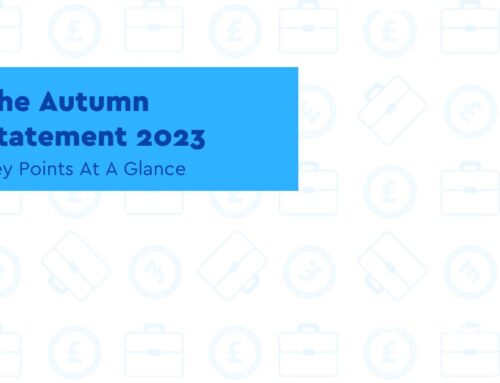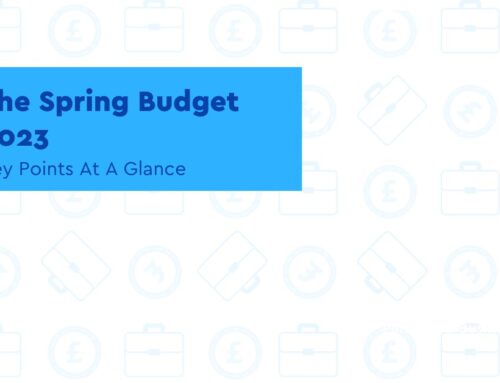News – Automatic Enrolment
Govt urged to ‘extend and deepen’ AE; flexible savings vehicles needed
Key Points
- The APPG for Financial Resilience warned that many Brits are not putting enough aside for retirement
- This adds to recent industry calls for the government to increase the default AE figure of 8%
The government has been urged to introduce an automatic enrolment (AE) system for the self-employed, and to work with the financial services industry to develop more flexible savings products to help people save for a rainy-day fund and their retirement.
Following its inquiry into saving trends during the pandemic, the All-Party Parliamentary Group (APPG) for Financial Resilience warned that many Brits are not putting enough aside for retirement, outlining a number of recommendations to help address this.
In particular, the APPG recommended that the government work with the financial services industry to enable the development of flexible savings products for those who may need access to a rainy-day fund but still want to save for later life.
It also urged the government to take steps to improve pension saving in under-pensioned groups, with a particular recommendation to create a new AE system for the self-employed through the tax system.
Indeed, the APPG noted that AE has been “impressive” in bringing millions more into pension saving, highlighting the “marginal” increase in opt-out rates during the pandemic as demonstration of the “fundamental strength of policies that correctly harness inertia”.
In light of this, the APPG argued that the government should “extend and deepen” AE policy, adding to recent industry calls for the government to increase the default auto-enrolment figure of 8 per cent, and to reduce the age threshold of AE.
The report also suggested that changes to AE policy could help address the gender pensions gap, noting that the current AE policy, whilst applicable to all employers, excludes low-paid workers and makes no allowance for periods of caring, therefore perpetuating the gender gap in pensions.
In addition to this, although the APPG acknowledged industry concerns as to whether savers will be able to increase the amount they are saving into a pension during the current cost-of-living crisis, it argued that efforts are nonetheless needed given the foresight required to address pension issues.
The group therefore recommended that the government work with the financial services industry to enable the development of flexible savings products for those who may need access to a rainy-day fund but still want to save for later life.
It stated: “There is a real danger that individuals and families could look to make savings in their household budget by decreasing pension contributions.
“As such, looking at financial resilience from a long-term savings perspective cannot be done without looking at general pressures on people’s budgets.
“Researchers and policymakers cannot think about meeting long-term financial needs without understanding trade-offs in terms of short-term pressures, and the difficulty in balancing these priorities.
“We should therefore refer back to the idea of sidecar savings and ‘partly liquid’ vehicles that you can access in certain circumstances as ways to encourage saving without compromising an individual’s ability to meet immediate costs.”
The group suggested that these flexible savings alternatives could also be particularly appealing to the self-employed, given the potentially volatile income this group experiences.
In addition to this, the APPG also highlighted the possibility of introducing a hypothecated tax through which self-employed people would save into a pension, as recommended during the inquiry by The Association of Independent Professionals and the Self-Employed.
Commenting in the foreword of the report, APPG for Financial Resilience chair, MP Tonia Antoniazzi, commented: “When we planned the inquiry last summer, we did not anticipate that a cost-of-living crisis so deep would emerge as we concluded our sessions.
“However, the pandemic can serve as a test-case for what can be done to help those across society cope with extreme financial pressures, both in terms of income and expenditure.
“For that reason, the recommendations we make here are even more pertinent to policymaking as those pressures continue to build.
“The APPG will continue working to understand how financial insecurity can develop, and why some groups are so much more vulnerable.
“It is crucial that the government considers the winding down of the pandemic as the start of a real change in our approach to personal finances. We cannot sit back until British people see tangible improvements in their financial resilience.”
This article was derived from: https://www.pensionsage.com/pa/Govt-urged-to-extend-and-deepen-AE-policy-flexible-vehicles-needed-amid-CofL-crisis.php
News – Business Imports
3,500 businesses risk losing ability to import goods
Key Points
- Businesses submitting import declarations must use the Customs Declaration Service from October 1
- It can take several weeks to be fully set-up on the Customs Declaration Service
More than 3,500 businesses risk significant delays to importing goods if they don’t move to the UK’s new streamlined customs system now.
Businesses submitting import declarations must use the Customs Declaration Service from October 1, 2022, when the Customs Handling Import and Export Freight (CHIEF) system will close for import declarations.
Businesses should check that their customs agents are ready to use the Customs Declaration Service. Those without a customs agent must set themselves up to make their own declarations using software that works with the system.
Many businesses are already using the Customs Declaration Service, however around 3,500 businesses are yet to move.
It can take several weeks to be fully set-up on the Customs Declaration Service so those waiting to register risk being unable to import goods to the UK from 1 October.
Julie Etheridge, HMRC’s Director of Programme and Operational Delivery for Borders and Trade, said:
There are now only 2 months left until businesses must use Customs Declaration Service for imports. Businesses need to move now or risk being unable to bring their goods into the UK.
Registering takes time so businesses should start moving to the Customs Declaration Service to ensure a smooth transition and avoid disruption to their business.
To help all businesses and agents prepare for the Customs Declaration Service, declarants are being contacted by phone and email to inform them of steps they need to take. Further information is available on GOV.UK, including a Customs Declaration Service toolkit and checklists, which break down the steps traders need to take.
Traders can also register or check they have access to the Customs Declaration Service on GOV.UK and access live customer support services for additional help.
Once registered, businesses which use a Duty Deferment Account will need to set up a new Direct Debit Instruction for the Customs Declaration Service by 30 September. If this is not set up, the Duty Deferment Account will no longer be usable, and individual immediate payments will need to be made each time an import declaration is made.
CHIEF will close for export declarations on 31 March 2023, with businesses being required to use the Customs Declaration Service to send goods out of the UK.
This article was derived from GOV.UK
News – HMRC
HMRC aims to collect more data for tax returns
Key Points
- As well as job titles and hours, locations of businesses will be under the spotlight
- The tax authority believes better data can help target operational activity more effectively
HMRC plans to collect further data on taxpayers to tackle tax evasion.
Announced in a new public consultation, HMRC aims to collect more data on self-employed workers, partnerships, and taxpayers who earn dividends.
As well as job titles and hours, locations of businesses will be under the spotlight.
In the consultation document, HMRC states:
“The changes in this document will potentially affect all self-employed taxpayers, all employers, employees about whom additional data may be stored and shared, as well as tax agents and tax or payroll software providers for these groups.
“Better data about the whole customer population can help us target operational activity more effectively – for example, compliance and debt collection activity.”
Suggested changes to self-assessment tax returns include mandatory company director and close company fields, which already exist on the SA102.
A new field in tax returns would also require the value of dividends received from the close company to a director, while there may be another new field asking for the percentage of the shareholder in the company.
The consultation will be open for comment until October 12, 2022, with any Government plans to legislate for any chances coming in the Finance Bill 2023/24 at the earliest.
News – Interest Rate
Bank of England announces biggest interest rate hike in 27 years
Key Points
- Interest rates are now at their highest level since December 2008
- The Bank now expects inflation to peak to 13% before the end of the year
The Bank of England (BoE) has hiked UK interest rates by 50 basis points to 1.75% as it looks to combat runaway inflation, which it predicts will hit 13% later this year.
It marks the sixth consecutive increase from the central bank, and biggest interest rate hike in 27 years since the Monetary Policy Committee (MPC) was set up back in 1997. Interest rates are now at their highest level since December 2008.
The MPC voted 8-1 on Thursday, with Silvana Tenreyro the lone dissenter, voting for a smaller rise to 1.5%.
The move was widely expected by economists and financial markets, and comes amid mounting pressure to pick up the pace of interest rate rises.
What does this mean?
The BoE has the undesirable task of battling inflation while trying not to impact the British economy in a harmful way.
Threadneedle Street has until now raised interest rates in 0.25 percentage point increments since December 2021, but pledged in June to act more “forcefully” in response to more persistent inflationary pressures.
UK inflation hit 9.4% in the year to June, partly due to a 42% year-on-year increase in petrol prices, and an increase of almost 10% in food prices.
The Bank now expects inflation to peak to 13% before the end of the year — well above its 2% target — and for it to remain elevated in 2023.
Earlier in the week BoE governor Andrew Bailey said: “The committee will be particularly alert to indications of more persistent inflationary pressures, and will if necessary, act forcefully in response. Bringing inflation back down to the 2% target sustainably is our job, no ifs or buts.”
The Bank also revealed plans to start selling the £850bn ($1tn) mountain of government debt amassed through a bond-buying programme during the pandemic and financial crisis.
What is the Bank saying about recession?
It has also predicted that the UK will fall into recession in the last three months of this year, as well as contracting through next year. Lasting for five quarters, this would be the longest recession since after the 2008 financial crisis.
“Inflationary pressures in the United Kingdom and the rest of Europe have intensified significantly since the May monetary policy report and the MPC’s previous meeting. That largely reflects a near doubling in wholesale gas prices since May, owing to Russia’s restriction of gas supplies to Europe and the risk of further curbs,” it said.
It added: “The United Kingdom is now projected to enter recession from the fourth quarter of this year. Real household post-tax income is projected to fall sharply in 2022 and 2023, while consumption growth turns negative.”
How will this impact you?
Many households will be now squeezed further due to the interest rate rise, including some mortgage-holders. Lenders might also be looking at increases to unsecured loan rates.
The BoE is estimating that around two-fifths of mortgages will go up over the next year, so more people will be having to make higher monthly payments.
For example, a homeowner with a £250,000 tracker mortgage on a 25-year term will be paying an extra £62 a month after today’s announcement.
“The hardest hit will be those remortgaging, coming from period of historic low rates to a much less competitive market; an increase to this extent could mean a monthly increase of hundreds of pounds in real terms.” Nick Leeming, chairman of Jackson-Stops, said.
People with other types of borrowing, including credit cards, personal loans and overdrafts, are also likely to see a potential increase in the cost of borrowing.
“Unfortunately, policy tightening will inevitably take its toll on the UK economy,” Seema Shah, chief strategist at Principal Global Investors, said. “Higher mortgage payments and borrowing costs will only add to the awful cost of living crisis, straining household budgets in a way we haven’t witnessed for over 60 years and plunging the UK into recession later this year.”
Financial markets have pencilled in another 25bp hike in September, with some predicting a pause after that.
Nicholas Hyett, investment analyst at Wealth Club, said: “Markets still think the Bank has a rate rise or two in the tank, but to some degree UK monetary policy is now caught in global forces over which the Bank has little control.
“Inflation will rise or fall according to what happens in Ukraine not Threadneedle Street, and rate decisions are dictated by moves at other central banks as much as by the MPC.”
This article was derived from: https://uk.finance.yahoo.com/news/bank-of-england-interest-rate-hike-mpc-inflation-110404272.html
Latest Snippets
Bank of England scraps mortgage affordability tests
Getting approved for a mortgage could become easier for some borrowers, as the Bank of England will no longer require lenders to carry out an affordability ‘stress’ test.
The central bank test had required lenders to calculate whether borrowers would still be able to afford their monthly payments if interest rates rose 3 per cent above their providers’ standard variable rate (SVR).
The stress test was introduced in 2014 to ensure borrowers did not take on more debt than they could afford should interest rates rise in future, but lenders will no longer apply this test.
The Bank of England believes the affordability stress test was unrealistic as standard variable rates (SVR) are often much higher than a fixed mortgage deal, and that buyers are much more likely to stick with fixed deals.
Inheritance tax hits record £6.1bn
The latest figures on inheritance tax (IHT) receipts show a 14% increase in revenue to £6.1bn for 2020-21, marking the largest ever revenue shot to the Treasury.
Inheritance tax take was up £729m to a record £6.1bn in the largest rise since 2015 when the figure shot up by 22%. An additional 900 estates had to pay the tax in 2021-22, with a record 23,000 paying IHT. However, this tax still only affects 3.7% of UK estates.
The combined value of agricultural property relief (APR) and business property relief (BPR) set against assets was £2.8bn in the tax year 2019-20. This was a fall of £700m (20%) compared to the tax year 2018-19. Most of this decline was concentrated in the value of BPR claimed, which fell by £670m. The value of APR was down by only £27m.
The value of donations to charities in estates also dropped as the value of exempted transfers to qualifying charities fell to £1.6bn in 2019-20, compared with £1.7bn the previous year.
The rise in IHT payments in the 2021-22 financial year is due to a combination of the knock-on effects of the Covid-19 pandemic on the volume of wealth transfers and IHT-liable deaths in recent years, continued rises in asset values, and the government’s decision in March 2021 to freeze the IHT nil rate band thresholds at £325,000 until 2026. This figure has not been adjusted for inflation or risen since 2008.
Get In Touch
At Morgan Reach, we understand every business needs a little help now and again-especially when it comes to the financial side of things. Therefore, to help our clients and visitors we endeavour to cover as much of the business news as possible. If you are self-employed or run a business and need assistance and advice on how these news could make a difference to you or your business, feel free to get in touch with the experts at Morgan Reach. Our business growth experts at Morgan Reach will guide you through what support is available for you or your business as well as the latest news that may affect you.







